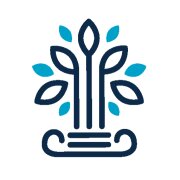Best FDA Law Lawyers in Seoul
Share your needs with us, get contacted by law firms.
Free. Takes 2 min.
List of the best lawyers in Seoul, South Korea
About FDA Law in Seoul, South Korea
FDA Law in Seoul refers to the regulatory framework governing the approval, safety, distribution, labeling, and marketing of food, drugs, medical devices, and cosmetics within Korea. The responsible authority is the Ministry of Food and Drug Safety (MFDS), which serves a role similar to the United States Food and Drug Administration (FDA). Seoul, as Korea's capital and largest city, houses many businesses and regulatory offices influencing these sectors. FDA Law in South Korea includes national statutes, regulations, and enforcement practices relating to product approval, importation, compliance, recalls, labeling, advertising, and consumer protection. Companies or individuals dealing with food, drugs, medical devices, functional foods, or cosmetics must comply with these legal requirements to operate lawfully in Seoul.
Why You May Need a Lawyer
Navigating FDA Law in South Korea can be complex, especially for foreign companies or individuals unfamiliar with local regulatory processes. Common situations where people may need legal help include:
- Importing or exporting food, drugs, medical devices, or cosmetics into or out of Korea
- Registering new products with the MFDS
- Addressing product recalls or responding to safety alerts issued by regulators
- Defending against enforcement actions or administrative penalties
- Ensuring advertising and labeling comply with Korean laws
- Dealing with issues regarding clinical trials or product testing
- Formulating and negotiating agreements with local distributors
- Adapting to regulatory changes affecting their products
- Resolving disputes, product liability claims, or consumer complaints
Because mistakes or misunderstandings can result in steep fines, product delays, or reputational harm, consulting with a lawyer knowledgeable in FDA Law is often crucial for companies or individuals conducting activities related to regulated products in Seoul.
Local Laws Overview
South Korea’s FDA Law is governed by a comprehensive set of statutes and regulations, including the Food Sanitation Act, Pharmaceutical Affairs Act, Medical Device Act, Cosmetics Act, and the Functional Health Foods Act. Some notable aspects:
- The Ministry of Food and Drug Safety (MFDS) is the main regulatory body, granting product approvals and overseeing compliance.
- Manufacturers and importers must obtain pre-market approvals or certifications for most drugs, devices, foods, and cosmetics.
- Strict labeling and advertising rules exist to protect consumers and prevent misleading claims.
- Clinical trials for drugs and certain devices must be conducted according to MFDS guidelines and require local authorization.
- Safety reporting, adverse event monitoring, and product recall procedures are mandatory.
- Penalties for non-compliance can include administrative sanctions, fines, sales bans, or criminal prosecution.
- Foreign manufacturers usually need to appoint a local South Korea representative for regulatory filings and correspondence.
Seoul’s legal environment is influenced by rapid regulatory updates, making it important to stay informed of both national and local requirements.
Frequently Asked Questions
What is the role of the MFDS in South Korea?
The MFDS, or Ministry of Food and Drug Safety, is the primary governmental authority overseeing the regulation of foods, drugs, medical devices, and cosmetics throughout the country, including Seoul. It sets standards, reviews product applications, monitors safety, issues recalls, and enforces compliance.
Do foreign companies need local representation in Korea for FDA-related filings?
Yes, foreign manufacturers typically must appoint a local authorized representative or partner in Korea to handle MFDS registrations and correspondence.
How do I get a product approved for sale in Seoul?
You must submit a registration or approval application to the MFDS, with required product data, testing results, and documentation. Approval processes and timelines differ depending on the product type.
Can I sell health supplements in South Korea without approval?
Most dietary supplements, classified as functional health foods, require MFDS pre-market approval or notification before being legally sold in Korea.
Are product labels required to be in Korean?
Yes, labels on foods, drugs, medical devices, and cosmetics must be provided in Korean, adhering to strict content requirements specified by regulations.
How do recalls work under Korean FDA law?
Manufacturers and importers must report product safety issues and initiate recalls as mandated by MFDS guidelines. The process includes consumer notification and regulatory follow-up.
What are common penalties for non-compliance with FDA Law in Seoul?
Penalties may include administrative fines, license suspension or revocation, product seizure or destruction, and in serious cases, criminal charges.
Are there specific rules for advertising medical products in South Korea?
Yes. The MFDS extensively regulates advertising claims for medical, food, and cosmetic products to prevent false or misleading information. Prior approval is required in many cases.
Can I conduct a clinical trial in Seoul for a new drug?
Clinical trials must be approved by MFDS and conducted in compliance with local regulations, often requiring local institutional review board (IRB) approval and patient consent.
How often do Korea’s FDA laws and regulations change?
Regulations are updated periodically to adapt to new scientific findings, global standards, and market practices. Businesses are encouraged to monitor official MFDS announcements regularly.
Additional Resources
If you need more information or assistance, consider reaching out to:
- Ministry of Food and Drug Safety (MFDS)
- Korea Pharmaceutical and Bio-Pharma Manufacturers Association
- Korea Medical Devices Industry Association
- Korea Chamber of Commerce and Industry
- Korean Bar Association for lawyer referrals
- Local embassies or business chambers for foreign companies
Next Steps
If you believe your situation requires legal guidance in FDA Law:
- Gather all relevant documents related to your products, business activities, or regulatory correspondence
- Develop a clear summary of your inquiry or legal needs
- Contact a qualified attorney or legal advisor specializing in FDA or regulatory law in Seoul
- Schedule a consultation to discuss your case and review your compliance obligations
- Follow your lawyer’s recommendations for moving forward, including making necessary regulatory filings or addressing any risks
Consulting a specialist early can help prevent costly mistakes, ensure smooth product approval, and resolve compliance issues efficiently under Korea’s FDA Law framework.
Lawzana helps you find the best lawyers and law firms in Seoul through a curated and pre-screened list of qualified legal professionals. Our platform offers rankings and detailed profiles of attorneys and law firms, allowing you to compare based on practice areas, including FDA Law, experience, and client feedback.
Each profile includes a description of the firm's areas of practice, client reviews, team members and partners, year of establishment, spoken languages, office locations, contact information, social media presence, and any published articles or resources. Most firms on our platform speak English and are experienced in both local and international legal matters.
Get a quote from top-rated law firms in Seoul, South Korea — quickly, securely, and without unnecessary hassle.
Disclaimer:
The information provided on this page is for general informational purposes only and does not constitute legal advice. While we strive to ensure the accuracy and relevance of the content, legal information may change over time, and interpretations of the law can vary. You should always consult with a qualified legal professional for advice specific to your situation.
We disclaim all liability for actions taken or not taken based on the content of this page. If you believe any information is incorrect or outdated, please contact us, and we will review and update it where appropriate.

















